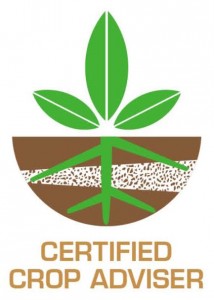This is the blog about what I am actually working on this summer. (In excruciating detail.)
Some background on the program I am interning with:
The Certified Crop Advisor (CCA) program was established in 1992 by the Society of Agronomy. Besides having, or being interested in a consulting career, many people take the exam for a variety of reasons; prerequisite for some industry positions, or PhD programs, supplement to college degree…etc. The exam itself covers four different areas: Crop, Soil and Water, Nutrient, and Pest Management and test takers are expected to know local management strategies adapted for their local climate and also broader management strategies. To achieve this, the test is split into local and international sections. The local section of the exam is organized by region. There are 28 regions in the U.S. Each region has its own committee board which has a variety of responsibilities including writing their local exam. New York State is part of the ‘Northeast Region’ which also includes CT, ME, MA, VT, NH, and RI. The international section is organized by the international committee board, located in Wisconsin which is also the CCA program headquarters.
In addition to writing their respective exams, the boards are also responsible for providing test takers with a set of study guidelines which come in the form of statements such as “Know the 17 elements essential for plant nutrition” or “Understand the process of soil formation”. The CCA program calls these study guidelines ‘performance objectives’ or PO for short. Though it was not required by headquarters, the Northeast Region wrote a study manual to accompany their local POs and developed a study website with practice questions for each PO.
What I do:
Quirine is on the committee board for the Northeast Region and is responsible for the educational materials (POs, study manual, and practice questions). I am working with her to update these materials. The POs are required by headquarters to be updated every few years but the manual and practice questions have not been updated or revised in some time.
- Get the PO’s updated.
The PO’s were originally compiled by a number of people. Each area; pest management, crop management, soil and water management, and fertility management, requires niche knowledge and so the POs were compiled by a number of professionals in the respective fields. For example, the pest management POs were put together by a weeds professional, insect professional, disease professional, pesticide/herbicide professional…etc. I connected with many of the original folks who were involved with making the POs and some new ones and asked them to review their sections and make any necessary updates. This process took many weeks and a lot of emails. After being updated, the POs will be sent to Wisconsin for approval from HQ. This was the first task and I have been working on it since my first day. At this point, five weeks in, it is 98% complete. - Get the manual updated.
With any change in the PO document, the content written for the study manual also changes. The same folks who made updates to the POs, I also asked to draft or edit content in the study manual. As well as getting the manual synch with the POs, I have also been working on revising some sections to read more smoothly. I have been doing this alongside getting the POs updated and am probably 35% of the way to finishing. - Revise & make practice questions
Out of all three areas of this project, I have done the least here. There is already a large bank of practice questions that exists but many of these questions do not follow Wisconsin’s question format. In addition to formatting, each question must be linked to a particular PO. I have been working on moving the question bank from Word to Excel so that they may be sorted by management area (pest, soil and water, fertility, and crop) and also by PO. I still have to revise the format of questions out of compliance with regulation and create questions for the POs which have none, as well as write more questions for the question bank. Improving the online study materials and practice questions is the main reason why the NRCCA created this internship and so for the rest of the summer I will focus the most time on this.
If anyone is interested to hear more about the certification or has any questions in general feel free to shoot me an email!

